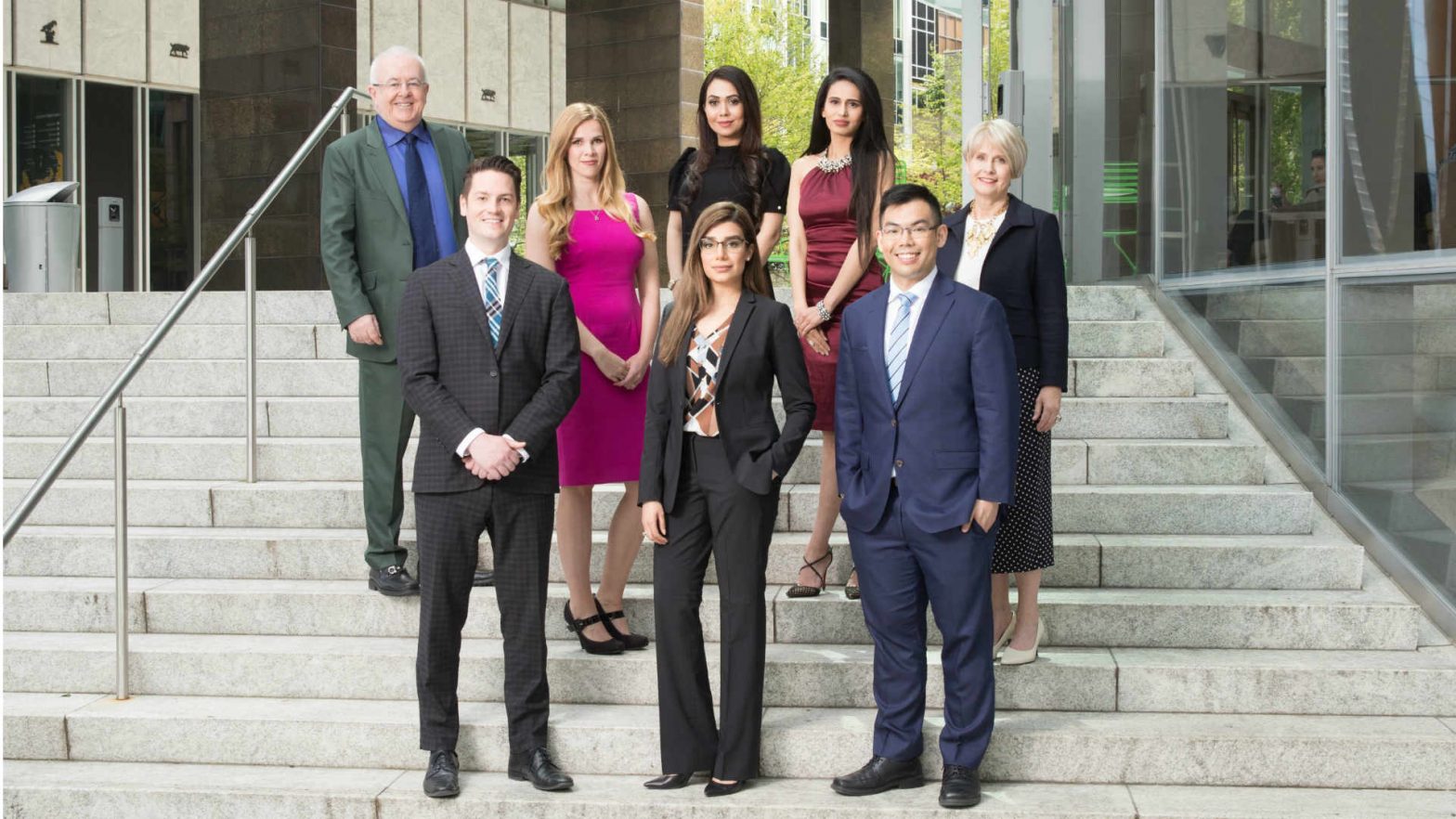
Double Dipping Spousal Support Lawyers deal with spousal support cases involving company property valuations involving multiple of earnings valuations and pensions that have been bought out in a previous family settlement. In today’s blog, Peter Graburn of our Calgary office and Fraser MacLean of our Vancouver office explain the complexities of company valuation disputes involving our Double Dipping Spousal Support Lawyers.
Calgary Double Dipping Spousal Support Lawyers 1 877 602 9900
In most divorces and separations, particularly in situations where couples have been together for a long time and / or are near retirement (“grey divorces”), there are usually two issues that need to be resolved:
- Division of Matrimonial Property – splitting accumulated assets (ie. the matrimonial home, investments, pensions, etc.) fairly and equitably, and;
- Spousal Support – ensuring each person has sufficient income to relieve the economic hardship suffered by the divorce or separation (even, or especially, after retirement).
But what happens if one spouse takes an asset that can be turned into cash (ie. home, investments, etc.) and the other takes an asset of equal value that is basically an income stream upon retirement (ie. a pension) that could then be included in income to determine spousal support for the spouse who took the cash? Isn’t this “double dipping” by the spouse that gets the cash and the spousal support based on the other spouse’s pension income? Is this fair?
What Is “Double – Dipping” In Vancouver Support and Calgary Support Cases?
“Double dipping” or “double recovery” refers to a situation where on breakdown of the relationship, one spouse’s pension is taken into account on equalization of property and then again in determining income for payment of spousal support purposes. In the case of Boston vs. Boston ([2001] 2 SCR 413), the Supreme Court of Canada stated that double dipping was “generally unfair” and should be avoided, except:
- where the payor spouse has the ability to pay additional spousal support;
- where the recipient spouse has made a reasonable effort to generate income from the equalized asset to become economically self-sufficient (ie. created their own “pension” from the asset for future financial support), and;
- despite this, an economic hardship or need from the marriage or its breakdown persists.
Subsequent cases have substantially expanded the exceptions to the “no double dipping” rule set out in Boston v. Boston.
Are Businesses Different Than Pensions – Yes!?
But what if the asset retained by the payor spouse is not a pension, but some other type of income-producing asset, such as an investment or business? Is it still unfair to include income received from that revenue-producing asset in determining the payor’s income for spousal support purposes? The Supreme Court in Boston differentiated pension income from income from a business or an investment, indicating that it is not double-dipping to claim income from businesses or investments for spousal support purposes as the business or investment will continue to have value even while it produces income (while the pension will, by its very nature, decrease in value as it produces income), stating (at para. 57):
“Pension income is obviously different from business income or income from an investment… When a pension produces income the asset is being liquidated. The same capital that was equalized is being converted into an income stream. By contrast, when a business or investment is producing income, that income can be spent without affecting the asset itself. In fact, the business or asset may continue to increase in value. The value of the business or investment can be equalized, but neither is depleted solely by producing income.” Lorne Maclean, QC successfully set the law in BC in Lightle v Kotar that a company profit multiple calculation or the fact the income stream is part of its value does not impact negatively the calculation of spousal support.
This position was recently applied by the Ontario Court of Appeal in the case of Halliwell v. Halliwell (2017 ONCA 349) which held (at para 134) that “double-dipping” as contemplated in Boston is not a concern where the assets involved in the equalization are non-liquidating assets (ie. businesses or investments) and not liquidating assets or special assets (ie. a pension). In British Columbia, see M.C.D v. D.A.D 2017 BCSC 1832
So, is the rule against “double-dipping” still to be followed? Is it still “generally unfair”? The “no double dipping” rule set out in Boston v. Boston was determined prior to the creation of the Spousal Support Advisory Guidelines (SSAGs) circa 2005 – 2008, under which Boston’s “double-dipping” rule is an exception to recognize that some adjustment may need to be made under the SSAGs to avoid “double-dipping”. Since that time, Courts have generally used a very formulaic method to apply the “no double-dipping” approach under Boston, using only the income generated from the undivided portion of the payor’s pension (plus any other non-pension income) to determine the payor’s income to be used in the SSAG formulas. Further legislative direction regarding dividing pensions at source (ie. federal government pensions are divisible at source under the Pension Benefits Division Act) may be useful in clarifying the “no double-dipping” issue.
Call our Vancouver Double Dipping Spousal Support Lawyers Now 1 877 602 9900
Calgary Spousal Support Lawyers assist their clients to understand which part of their income may (or may not) be included to determine income for spousal support purposes, particularly when going through the difficulties of a “grey divorce” or high net worth divorce involving a lucrative family business.








